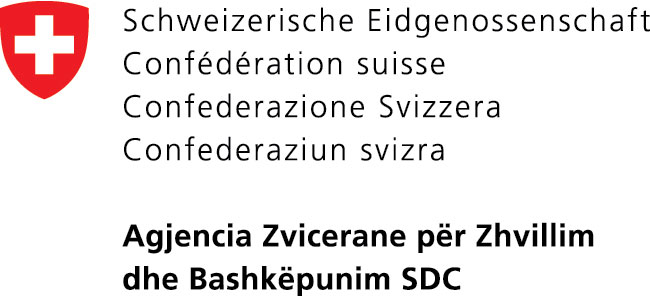Suela Jorgaqi after graduating from the Faculty of Foreign Languages in Tirana for German, decided to continue her studies in Switzerland. After finishing her studies, she decided to build her life in Switzerland. There she created her new family with her Swiss husband. Suela Jorgaqi has been the director of the Pestalozzi Library in Switzerland for nine years. In an interview for “Albanian Diaspora” Jorgaqi shows that she feels very happy when the institution she runs is visited by Albanian children. She also talks about the mother tongue development program, considering the latter as the basic language of formation for each individual.
You have been the director of the Pestalozzi Library in Switzerland since its inception. How did your work in this position start and how accomplished do you feel?
It has been 9 years since I have been in charge of this important institution such as the Zurich library where I have experienced various experiences, which have raised me professionally, but also spiritually. In these years I have been put in the role of manager, psychologist, teacher, accountant, translator, animator, etc., because this is the library, a place where you experience all this. Our library is a location for all events, especially in Corona time, where people need more support as well as a place to have fun. So, I feel realized, even though the realization has no end. But I do not miss the challenges and when I miss them, I look for new ones.
Being in contact with books every day and people who love books, what feeling do you convey?
 Positive feelings. As the director of the Pestalozzi Hardau Library in Zurich, one of the 14 libraries in Zurich, I do a very interesting and diverse job from a professional point of view, but also useful for society, because I have the opportunity to connect books with people. And so, everyone benefits.
Positive feelings. As the director of the Pestalozzi Hardau Library in Zurich, one of the 14 libraries in Zurich, I do a very interesting and diverse job from a professional point of view, but also useful for society, because I have the opportunity to connect books with people. And so, everyone benefits.
Then in addition to books in 12 different languages, we also offer digital offers like ebooks, pressreader for online magazines and streaming for movies and music. In addition to being the director of the Hardau library I am responsible for all activities in all 14 Pestalozzi libraries. We also have programs for mothers with children not only in German, but also in Albanian and other languages, to develop the mother tongue. And according to a study by PISA it is said that a child or adult who does not speak the mother tongue, finds it difficult to learn a second language by root. Because integration starts with language and this is also a library task.
In this library there are also over 2000 books in Albanian language. How many are attracted to Albanians in Switzerland?
Most Albanians here are from Kosovo. The first generation does not read much, but young people and children read, perhaps more German than Albanian, because it is the language they learn to write. There are many Albanian children coming here, and that makes me happy.
Of course, there are regular readers who frequent the library often, but I would like everyone to know about our library. This is also a marketing issue. Not all Albanians living in Zurich know or have heard of our offers. Therefore, I hope that your portal will be read by as many people as possible and as many readers as possible will be approached.
Who are the most preferred Albanian authors?
Yes, Kadare remains wanted. Then there are people who prefer young Albanian or translated authors. Congo is also on my shopping list because I like it myself.
How involved are you in Diaspora activities in Switzerland?
I am in close contact with the Albanian embassy in Bern. Even when Minister Majko came, I was happy to receive him here earlier in our library. But I try to offer all the associations a place in the library, because here we have a place and space to do any kind of activity. We also held concerts and evenings in the library. Even Inva Mula was my special guest, an activity that was accompanied by TV Klan.
What is your immigration history and how difficult was the beginning?
The identity of Albanians has been complicated in recent years, we live in the four corners of the world, we speak and dream in different languages and structures. I feel a European citizen, but with stable Albanian roots. My husband is Swiss, my son speaks Albanian very well, my friends are Swiss, Albanian, Portuguese, Italian, Spanish.
Personally, I was privileged because I graduated from the Faculty of Foreign Languages in German in Tirana and immediately after that I came to study in Switzerland. The diploma in “Information Science and Documentation”, which includes libraries, opened the way for me to work in this institution where I am the only foreign director. But my first job was in the largest Swiss union, “Unia”, where not only did I get to know Switzerland better politically and socially, but I also made some of my best contacts, which I still have today. There I had the opportunity to perfect other languages, such as Spanish and Italian, which are my early passions.
Would you like to build your career in your hometown?
I do not like to miss chances, so yes, I ask myself this question. I often think about what I would have done in Albania, especially when I am with my friends there. I think in any country of the world you can feel good if you have the right circle near you and do something you like. But if I were in Tirana, I would like to reorganize the Pyramid to turn it into an interesting cultural center: we can even dream, right?
What do you miss most about your hometown?
Sea, fish, family, my friends, pastries at the confectionery Zagoria…





